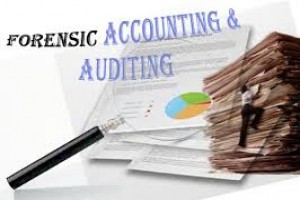Description
Date
1st Batch: 6th – 8th Feb, 2025
2nd Batch: 28th – 30th Apr, 2025
3rd Batch: 14th – 16th July, 2025
4th Batch: 16th – 18th Oct 2025
Event Details
- Recognize the most common financial statement fraud schemes
- Identify the red flags of financial statement fraud
- Learning how to identify the red flags associated financial statement fraud
- Understand the fraud implications of emerging issues in financial reporting
- Understanding fraud fundamentals used to identify fraud within your organization.
- Learning the techniques most commonly used to detect financial statement fraud
COURSE OUTLINE
Introduction to Financial Statement Fraud
- Definitions of fraud
- Fraudster characteristics
- Fraud basics
Auditor Responsibility for Fraud
- Auditing standards for fraud
- Fraud programs and governance
- Fraud Risk Assessments
Improper Revenue Recognition
- Revenue recognition
- Long-term contracts
- Channel stuffing
- Sales with conditions
- Fictitious sales/revenue
- Contingencies
- Related parties
- Indirect methods of revenue manipulation
Improper Deferral of Costs and Expenses
- Accounting method changes
- No recording
- Concealment of costs
Improper Asset Valuation
- Accounts Receivable
- Inventory
- Fixed assets
- Business combinations
Improper Recording of Liabilities
- Changes in accounting
- Failure to record
- Off-balance sheet entities
Disclosures
- Significant changes and events
- Related-party transactions
- Management discussion and analysis
Financial Statement Fraud Detection Methods
- Ratios
- Comparative techniques
- Cash flow
- Regression analysis
- Benford’s law
- Beneish M-Score
- Damerau-Levenshtein—fuzzy logic
FOR WHOM:
Internal audit staff and management, Financial auditors, Internal control professionals, Accounting staff.
TRAINING METHODOLOGY
The training methodology combines lectures, discussions, group exercises and illustrations. Participants will gain both theoretical and practical knowledge of the topics. The emphasis is on the practical application of the topics and as a result participant will go back to the workplace with both the ability and the confidence to apply the techniques learned to their duties.





